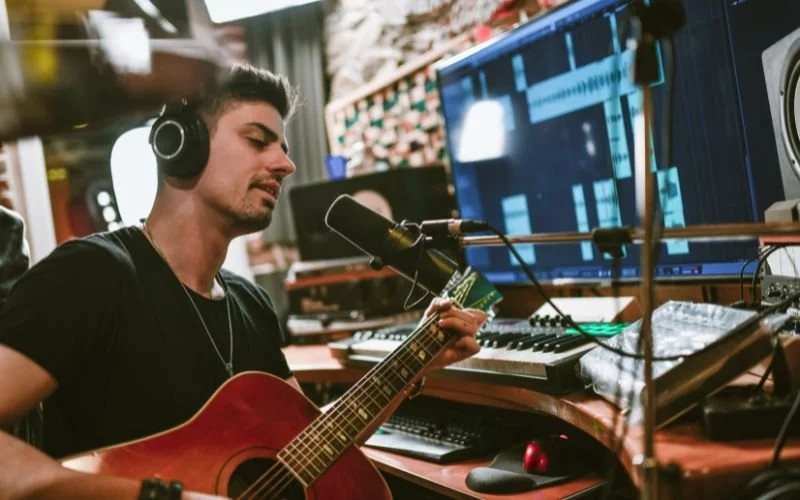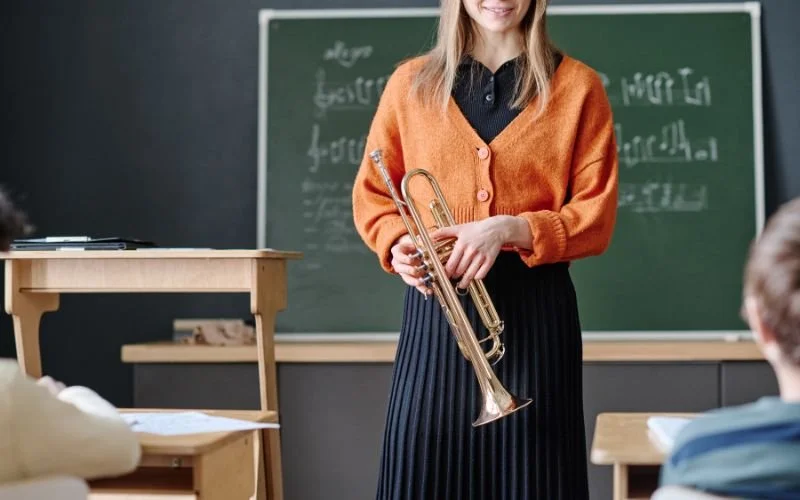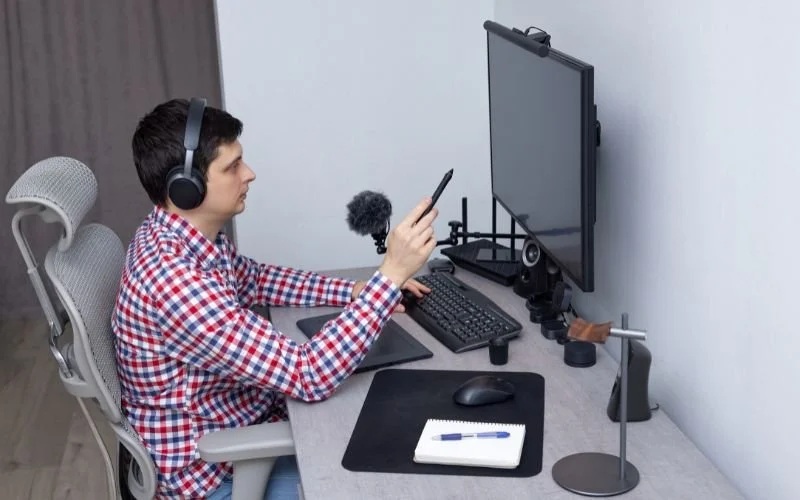Beginning opera singing: explore your voice and let yourself be surprised
You hear the first notes of an opera, and you're instantly transported. But between the power of the voices and the elegance of the interpretations, you ask yourself, "Could I, too, sing opera one day?" The answer is yes, and the good news is that you don't need to have a voice worthy of Pavarotti to get started.
Lyric singing isn't just about technique: it's about learning to connect with your voice, explore its nuances and express strong emotions. To begin with: the most important thing is to have fun and let yourself be carried away, without being an expert or aiming for the stage. Whether you're curious or secretly dreaming of an operatic moment, you may well be surprised at what your voice can reveal.
Lyric singing, a dream more accessible than it seems
Lyric singing is like the haute couture of music: elegant, impressive, sometimes intimidating... but frankly, it makes you want to try it. When a voice rises to sing an operatic aria, we all have this reaction: "How do they do that?!". Yet behind the apparent complexity lies a unique blend of power and emotion.
If it's so fascinating, it's because it's so powerful. You don't have to be an expert to feel something when you hear a lyric aria. Whether it's the depth of a baritone or the lightness of a soprano, it resonates within us. Lyric is the art of connecting directly to emotions, without filters.
Can anyone sing opera?
You don't have to be born into a musical family or have over-trained vocal cords to be a lyricist. Behind the impressive vocalizations lies a technique based on simple principles: breath control, voice placement and sincere emotion. These basics can be explored by anyone, even in their own living room. In short, it's much more accessible than it sounds. Maria Callas, Luciano Pavarotti and Renée Fleming have made opera history. Why shouldn't you?
Have you always wanted to know your voice type? Take the test!
How do you recognize a lyric voice?
A lyric voice is distinguished by :
Its amplitude: it can be heard throughout a room without amplification.
Unique timbre: lyric voices have rich, nuanced tonalities, often crafted to suit a variety of repertoires.
Tessitura: every singer has a vocal "comfort zone" (soprano, tenor, baritone...), but a lyric voice can cover a wide scale range of notes with ease.
What are the characteristics of lyrical singing?
Voice projection: an opera singer can fill an entire hall without a microphone, thanks to perfect breath control.
Solid technique: vibrato control, clear articulation and impeccable diction are essential to convey the story and emotion of a piece.
A wide range of emotions: lyricism can be gentle, dramatic, joyful or tragic, and every note aims to touch the listener's heart.
How to sing opera? The basics to get started without pressure
If you're intrigued by opera singing, the first thing you need to know is that there are no "official prerequisites" to get started. You don't need to have the voice of a diva, or master music theory to perfection. All you need is a little curiosity and the desire to try it out.
Start with your breath. You don't have to be an advanced yogi, but learn to breathe deeply, with your belly. Imagine that you're inflating a balloon with each breath (not your shoulders). It's this breathing that will give you the power and control you need to sing without straining.
Find your voice. You don't have to know everything about your range (soprano, tenor, baritone, etc.) from the start. Just try to sing in a zone where you feel comfortable, without forcing yourself. What if it sounds off or crackles? Don't panic, this is normal at first.
10 tips for learning to sing in tune
Sing for pleasure. You don't need an ultra-sophisticated repertoire to get started. Take a simple melody, a song that inspires you, and have fun playing with your voice. Yes, even in the shower, it counts. The idea is to learn to familiarize yourself with your voice without pressure.
The secret is to go for it without setting the bar too high. Opera singing is an adventure, not a race. Take one step at a time and enjoy the journey. And who knows, maybe your bathroom will soon become your first stage!
Lyrical singing: vocal techniques to shine (even in the shower)
Enjoyed exploring your voice? Great, now let's get down to the technical basics. Rest assured, we're not asking you to become an expert in a day. With a few simple exercises, you can already lay a solid foundation and start singing more freely.
1. Breathe like a pro
Breathing is the key. In opera singing, we speak of diaphragmatic breathing. Translation: you need to breathe "with your belly" rather than with your upper chest. Try this exercise: inhale slowly as you feel your belly inflate, then exhale gently as if you were blowing out a candle without extinguishing it. Repeat this a few minutes a day, and your breath will become your best ally.
2. Adapt your posture, that's the basis
Good posture can transform your voice. Imagine you're a tree: well-rooted with a straight trunk. Relax your shoulders, keep your chin parallel to the ground and stand up straight. You'll not only sing better, but you'll also feel more confident (even when no-one's looking).
3. Play with your voice
Want to try out the famous "vibrato" of opera singers? Good news: it's not just for pros. Just sing a long, steady note and relax your throat. With a little practice, you might just hear those little ripples appear. Don't stress if it takes a while, it's like learning to ride a bike: it comes with practice.
4. Articulate as if you were exaggerating
In opera singing, every word must be understood, even in a full house. Practice opening your mouth (yes, really wide) and articulating each syllable. Choose a simple phrase and have fun singing it, exaggerating your diction. Bonus: it can also improve your everyday elocution! So, are you ready to become the star of your bathroom?
🗣 3 simple exercises for beginning opera singers
Controlled breathing: inhale slowly, expanding your belly, then exhale slowly, counting to 8. Gradually increase to 12 or 16 to strengthen your breath.
Exaggerated articulation: recite a simple phrase like "Are the Archduchess's socks dry?", articulating each word exaggeratedly. Then try singing it on one note.
The glissando: choose a low note and gently slide up to a higher one, then back down. This exercise helps to soften your voice and work on your control.
Step-by-step progress in opera singing: from salon to stage (or almost)
Have you laid the foundations? Congratulations, you're already on the right track! Now it's time to take it up a notch and explore what your voice can really do. There's no pressure: the idea is to progress at your own pace rythm while enjoying discovering your vocal universe.
1. Explore your directory
Start with accessible pieces. Don't go straight for a Verdi aria! Opt for simpler songs or popular melodies suited to your tessitura. For example, a light opera excerpt or a revisited classical song can be an excellent starting point. The important thing is to choose songs that inspire you.
2. Make music part of your daily routine
Singing regularly, even for 10 minutes a day, makes a huge difference. Whether it's humming while you cook or working on a specific tune, regularity is your ally. And if you can, record yourself! It can be intimidating, but it's a great way to track your progress and adjust your technique.
3. Dare to sing with others
Joining a choir or singing group is a fantastic way to progress. You'll learn to sing in harmony, listen to others, and above all, you'll have the opportunity to share your passion. It's also a great way to meet people who share your interest in music and maybe even opera.
4. Think of a teacher
If you feel you're stagnating or want to go further, working with a singing teacher can be a real game-changer. You don't have to take intensive lessons: even a few sessions to refine your technique can work wonders. A good teacher will guide you gently and help you reveal your voice's full potential.
Find the music learning method that's right for you!
5. Show patience (and kindness)
Lyric singing takes time. Some days your voice will be at its best, others a little less so - and that's normal. The important thing is to be kind to yourself and remember that every little improvement is a victory.
💡 Mistakes to avoid when starting out in opera singing
Forcing your voice: if it hurts, stop. Lyrical singing should be comfortable, not painful.
Go too fast: every step of the way takes time. Be patient with yourself.
Neglecting the warm-up: as with sport, always prepare your voice with gentle exercises before singing.
Why sing opera?
Opera singing is not just about technique or performance. It's a personal adventure that transforms, enriches and surprises. By working on your voice, you'll discover much more than notes and techniques: you'll learn to know yourself better, to tame your breath, to express yourself with power and emotion.
A confidence boost: singing opera, even at a beginner's level, means learning to surpass yourself. Every step forward, every note better held, every vibration felt is a small victory. And this sense of accomplishment eventually spills over into other aspects of your life: posture, confidence, speaking...
A real moment for you: in today's fast-paced world, taking the time to sing is a parenthesis just for you. It's a moment when you can concentrate on your voice, your breath, your sensations. Whether you're singing in your living room or in a choir, opera singing is a unique way to reconnect with yourself.
A passion to share: what if your operatic adventure also became a way of forging links? Whether with a singing group, a choir, or simply by showing off your progress to friends and family, singing is a form of expression that brings people together. Singing is also about transmitting emotions, stories and a bit of yourself.
How do I become an opera singer?
Take lessons: a singing teacher can teach you the basics, such as breathing and posture.
Work on technique: the voice needs to be trained like a muscle, with regular exercises.
Learn solfeggio: understanding music theory helps you perform your pieces more effectively.
Explore your repertoire: choose pieces suited to your tessitura and level.
Training at a school or conservatory: for the most ambitious, specialized training is often necessary.
🎶 Start learning opera with Newzik and boost your progress :
Create your own opera playlists: group together your favorite pieces, from opera classics to more accessible arias for beginners. No need to search for hours, everything is centralized and easy to organize.
Personalize your scores and share them endlessly: add annotations, mark breaths or highlight difficult passages to help you find your way around. Share your annotations in real time with your singing group or teacher.
Work wherever you like: on your tablet or smartphone, your scores follow you wherever you go, whether at home or at your singing lesson.
Work with integrated audio: synchronize your scores with recordings to sing in rythm and improve your performance.









